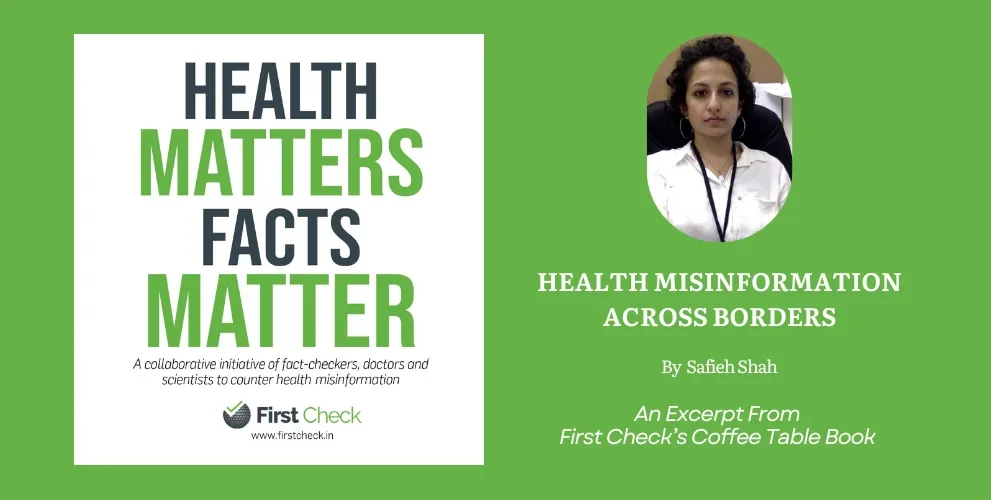Health Misinformation is not a uniform phenomenon across the globe; its impact and prevalence vary significantly from one region to another.
“What’s intriguing is the discrepancy between the actual prevalence of misinformation and the level of concern it generates in different regions.”
It’s fascinating to see how online communities are coming together, supporting each other across distances and time zones, and shaping the future. It has made me realise how important it is for media professionals and health experts to work together, especially when it comes to fighting health misinformation.
I’ve seen this collaboration in action with First Check: health experts provide accurate information just when it’s needed, and media professionals step in to make sure this information is easy to understand and engaging. They can amplify this information on different platforms, making sure it reaches as many people as possible.
Based on my observations across various countries, it’s evident that misinformation poses a global challenge. However, what’s intriguing is the discrepancy between the actual prevalence of misinformation and the level of concern it generates in different regions. For instance, in South Asia, misinformation proliferates widely, yet there seems to be a comparatively lower level of concern among the people compared to regions like America and Canada. Despite the significant impact misinformation has had in recent times, the apparent lack of concern makes it necessary to strengthen mass awareness campaigns.
In South Asia, the spread of false information online is a critical concern. Across various social media platforms, misinformation spreads among diverse groups and identities, including different age and religious groups. The repercussions are devastating: such misinformation distorts scientific truths creating a climate of fear and panic. This proved detrimental during the pandemic, eroding trust in healthcare services, leading to vaccine hesitancy, and the adoption of unverified treatments.
In Canada, misinformation primarily revolves around scams, which historically targeted financial matters, but have now shifted towards exploiting health concerns. These scams include deceitful promises of prevention and treatment, extending to fraudulent communications advising COVID patients to forgo quarantine measures. It has undermined the trust in public health systems, culminating in instances of verbal abuse and threats directed at healthcare workers. The spread of conspiracy theories, particularly regarding vaccination is posing a significant challenge to public health efforts worldwide.
Regular monitoring and updated research are necessary to keep abreast of the current state of health misinformation on social media. Localised studies are also needed to determine regional variations in the prevalence of health misinformation on social media. Finally, we need to adopt a whole-of-society approach and prevent any groups of society from being marginalised, persecuted, stigmatised, blamed, shamed, or excluded from combating the enemy: health misinformation.
This is an excerpt from First Check's Coffee Table Book, you can read the full Coffee Table Book here.
Safieh Shah is a Senior policy scientist and epidemiologist based in Canada and is a member of the First Check team of Experts.


